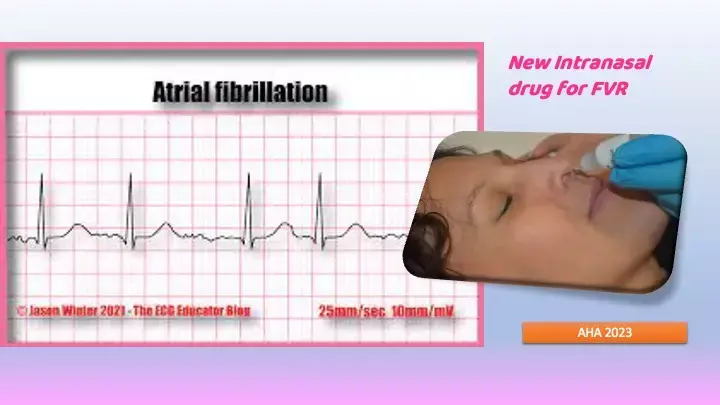- Home
- Medical news & Guidelines
- Anesthesiology
- Cardiology and CTVS
- Critical Care
- Dentistry
- Dermatology
- Diabetes and Endocrinology
- ENT
- Gastroenterology
- Medicine
- Nephrology
- Neurology
- Obstretics-Gynaecology
- Oncology
- Ophthalmology
- Orthopaedics
- Pediatrics-Neonatology
- Psychiatry
- Pulmonology
- Radiology
- Surgery
- Urology
- Laboratory Medicine
- Diet
- Nursing
- Paramedical
- Physiotherapy
- Health news
- Fact Check
- Bone Health Fact Check
- Brain Health Fact Check
- Cancer Related Fact Check
- Child Care Fact Check
- Dental and oral health fact check
- Diabetes and metabolic health fact check
- Diet and Nutrition Fact Check
- Eye and ENT Care Fact Check
- Fitness fact check
- Gut health fact check
- Heart health fact check
- Kidney health fact check
- Medical education fact check
- Men's health fact check
- Respiratory fact check
- Skin and hair care fact check
- Vaccine and Immunization fact check
- Women's health fact check
- AYUSH
- State News
- Andaman and Nicobar Islands
- Andhra Pradesh
- Arunachal Pradesh
- Assam
- Bihar
- Chandigarh
- Chattisgarh
- Dadra and Nagar Haveli
- Daman and Diu
- Delhi
- Goa
- Gujarat
- Haryana
- Himachal Pradesh
- Jammu & Kashmir
- Jharkhand
- Karnataka
- Kerala
- Ladakh
- Lakshadweep
- Madhya Pradesh
- Maharashtra
- Manipur
- Meghalaya
- Mizoram
- Nagaland
- Odisha
- Puducherry
- Punjab
- Rajasthan
- Sikkim
- Tamil Nadu
- Telangana
- Tripura
- Uttar Pradesh
- Uttrakhand
- West Bengal
- Medical Education
- Industry
Intranasal Etripamil shows potential for AF with fast ventricular rate control: AHA 2023

Despite chronic therapies, atrial fibrillation (AF) leads to fast ventricular rates (FVR) often requiring emergency department visits for intravenous treatments. Etripamil is a fast-acting, calcium-channel blocker administered intranasally that has previously been shown to be of benefit in paroxysmal supraventricular tachycardia (PSVT) patients as an emergency self-administered measure. The recently presented phase 2 ReVeRA-201 study at AHA 2023 conference has shown that this drug provides quick relief for patients with AF accompanied by FVR. The results were simultaneously published in Circulation: Arrhythmia and Electrophysiology journal.
Etripamil is an L-type calcium channel blocker that has been formulated as a nasal spray for both rapid onset of action and a short-lasting plasma exposure. It has been studied as a self-administered therapy for patients with PSVT, demonstrating rapid termination of the arrhythmia, reduced visits to the emergency department, and possibly fewer medical interventions.
In the ReVeRA-201 trial, which took place at 23 locations in Canada and the Netherlands, researchers examined the impact of the nasal spray on patients who arrived at the emergency department with any form of atrial fibrillation (AF) and a rapid ventricular rate (≥ 110 bpm). Participants were randomly assigned to receive either etripamil or a placebo, and the nasal sprays were administered by medical personnel.
The primary objective was to demonstrate the effectiveness of etripamil in reducing VR in AF-FVR within 60 min of treatment. Secondary objectives assessed achievement of VR <100 bpm, reduction by ≥10 and ≥20%, relief-of-symptoms and treatment-effectiveness; adverse events (AEs); and additional measures to 360 min.
Authors found that:
1. The mean maximum reduction in ventricular rate over the first 60 minutes after the spray was administered, and this was, on average, 29.91 bpm greater in the etripamil arm.
2. Etripamil also resulted in greater proportions of patients who achieved a ventricular rate < 100 bpm, at least a 10% reduction in the rate, and at least a 20% reduction in the rate.
3. The median time needed to get below 100 bpm was just 7 minutes.
The researchers also assessed patient-reported outcomes through the Treatment Satisfaction Questionnaire for Medication-9. Participants treated with etripamil gave higher ratings for effectiveness and overall satisfaction when compared to those who received the placebo. On the individual question of symptom relief, patients treated with etripamil reported a higher rating.
Regarding safety, the predominant treatment-emergent adverse events were related to the drug administration site, with higher occurrences of nasal discomfort and rhinorrhea observed in the etripamil group. In the etripamil group, two instances of bradyarrhythmia were reported, while the placebo group had two cases of intracardiac thrombus.
The current study addresses an important gap in care for patients with atrial fibrillation and FVR. It may be a novel development to be able to self-administer a drug if one has AF with FVR and be able to avoid the emergency room visits.
Source: Camm AJ, Piccini JP, Alings M, et al. A multicenter, phase 2, randomized, controlled study of the efficacy and safety of etripamil nasal spray for the acute reduction of rapid ventricular rate in patients with symptomatic atrial fibrillation (ReVeRA-201). Circ Arrhythm Electrophysiol. 2023
MBBS, MD , DM Cardiology
Dr Abhimanyu Uppal completed his M. B. B. S and M. D. in internal medicine from the SMS Medical College in Jaipur. He got selected for D. M. Cardiology course in the prestigious G. B. Pant Institute, New Delhi in 2017. After completing his D. M. Degree he continues to work as Post DM senior resident in G. B. pant hospital. He is actively involved in various research activities of the department and has assisted and performed a multitude of cardiac procedures under the guidance of esteemed faculty of this Institute. He can be contacted at editorial@medicaldialogues.in.
Dr Kamal Kant Kohli-MBBS, DTCD- a chest specialist with more than 30 years of practice and a flair for writing clinical articles, Dr Kamal Kant Kohli joined Medical Dialogues as a Chief Editor of Medical News. Besides writing articles, as an editor, he proofreads and verifies all the medical content published on Medical Dialogues including those coming from journals, studies,medical conferences,guidelines etc. Email: drkohli@medicaldialogues.in. Contact no. 011-43720751


